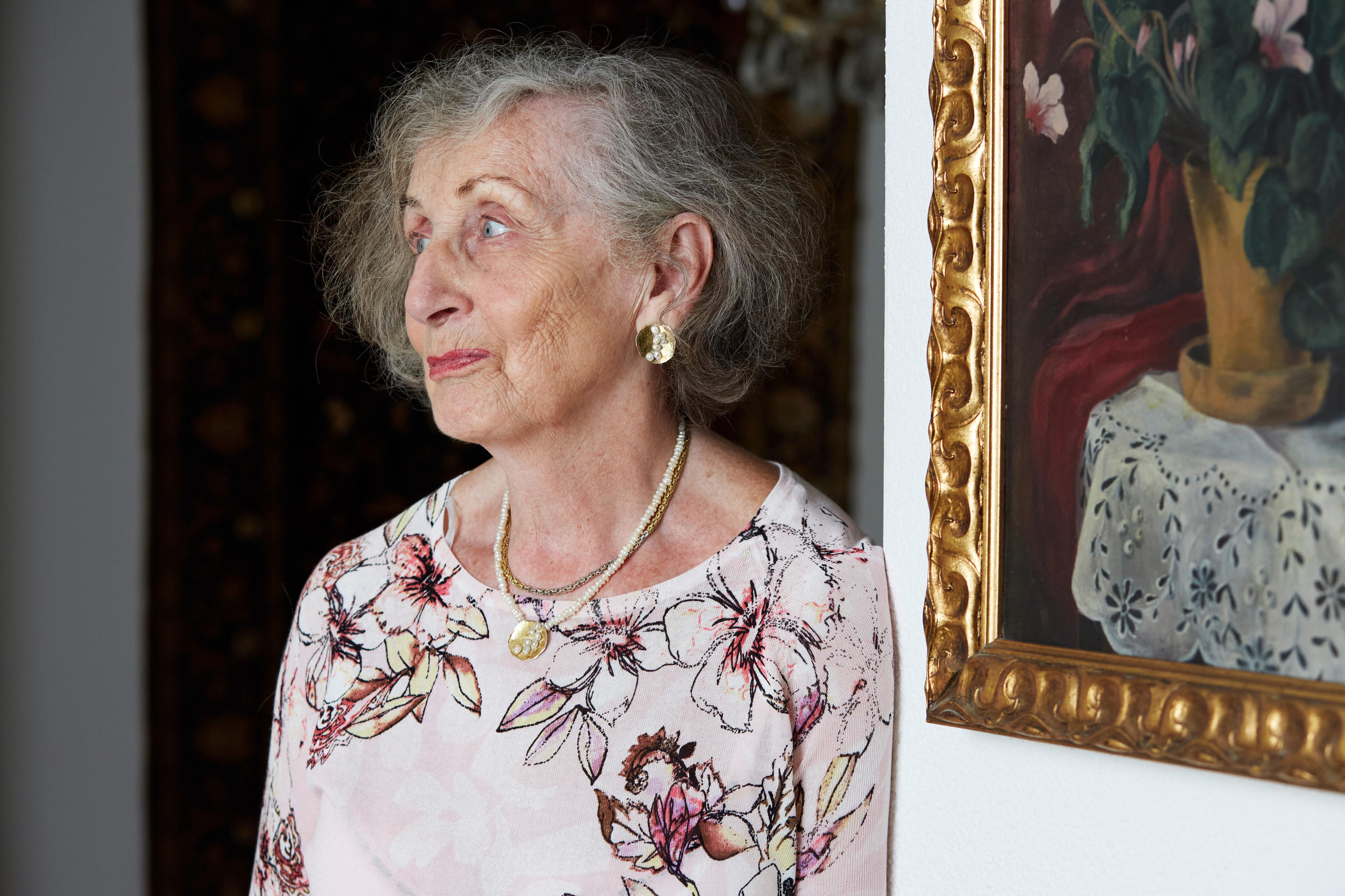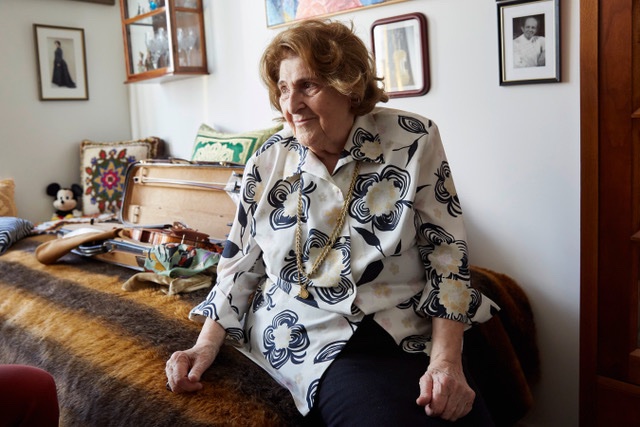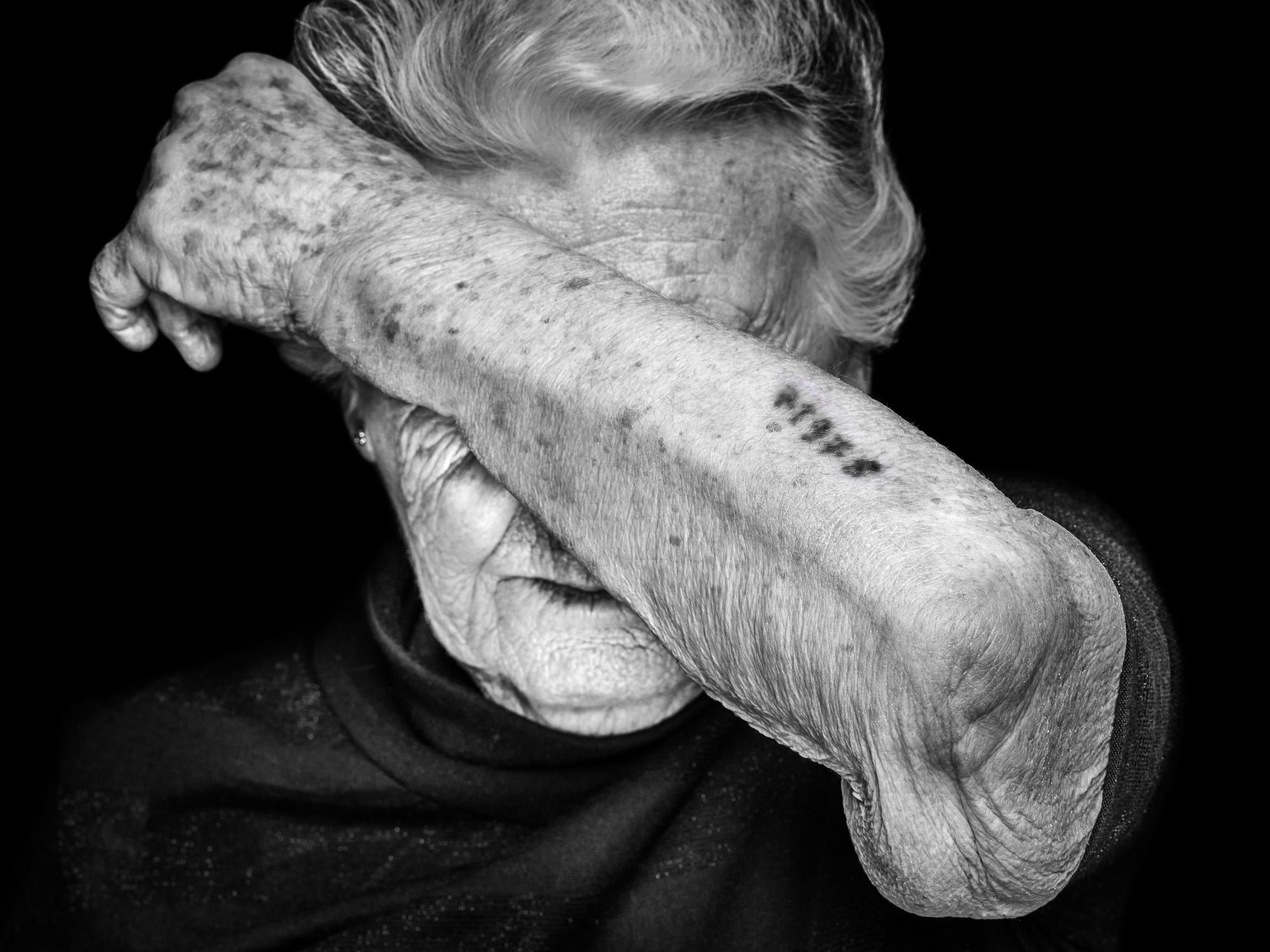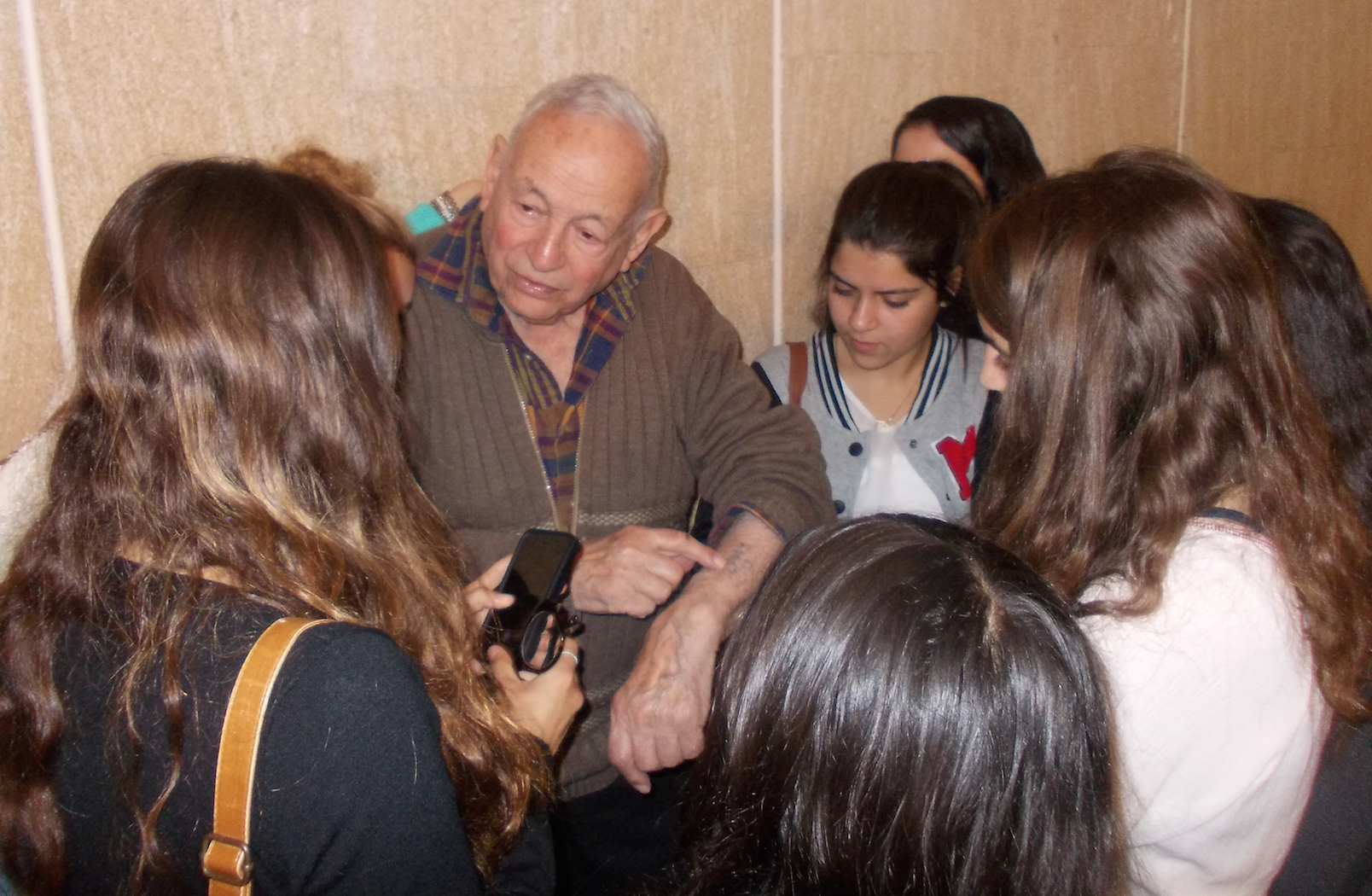
Holocaust survivor breaks silence over her experience

Betty Brenner fled to Switzerland from her home in Czechoslovakia in the aftermath of the Prague Spring in 1968. But she still finds it difficult to talk about her first flight from persecution – as a Jew during the Second World War.
I first met Betty in December 2019 in her home in Zofingen, northern Switzerland, where she has lived for 51 years. “It’s a nice little town – I feel at home here,” the 82-year-old says, adding after a short pause: “Well, you have to feel at home somewhere.”
Betty, piercing blue eyes still alert, sits on the sofa in the middle of the living room. Fifty-five years ago she did not want to leave her hometown of Brünn in Czechoslovakia. But when Soviet tanks rolled in to crush the liberalisation movement known as the Prague Spring in August 1968, Betty and her husband felt they had no choice but to leave. Together with their young son Tomas, they headed for Austria.
During the Cold War, Europeans, including the Swiss, showed a great deal of solidarity towards people from the Eastern Bloc. “The Swiss made us feel very welcome,” Betty remembers. If people were interested, she would tell them about their lives under Communist rule and the time when Soviet troops invaded Czechoslovakia. But Betty never talked about the first time she was forced to leave her home. That was in 1944, when she fled to the Vepor Mountains in Slovakia. It was much more traumatic, and a lot more dangerous too.
Would she be willing to speak about it today? Betty is hesitant.
“I’d rather not talk about it,” she says. In the end, however, she agrees to tell her story even though she knows that it will upset her. She has only recently realised what her parents must have gone through and wonders what she would have done in their place.
“The older I get, the more I think about it,” she says. “It still sends a shiver down my spine when I imagine what they had to endure.” But at the time she was too young to understand and sometimes did not know how to react.

More
Holocaust survivor: ‘Bergen-Belsen is my home’
Betty remembers one occasion when she nearly got her family into trouble. It was a snowy winter’s day and Betty, who was about seven years old, was out tobogganing. Suddenly a stranger approached her and asked for her name. “I don’t know my name,” she answered. “I have to ask my mother.” Betty, who was brought up never to lie, remembered that her mother had said the family name had changed to Lacković. When her father heard what she had said, he quickly grabbed her and said they had to go.
The threat of this encounter only dawned on her much later, and the thought of what could have gone wrong still fills her with fear. Betty finds it unsettling to speak about these events as it brings back bad memories that keep her up at night.
‘What did the old Jew do?’
Betty shows me a family photo taken in front of their house in Muráň, a village in Slovakia, in the summer of 1944. It shows her parents, Klara and Ladislav Engel, their two children and their grandmother Františka Engel, clad in a long dress tightly buttoned up to the neck. Alžbeta – now Betty – wears shiny black leather shoes. Her brother Ervin presses his stretched arms tightly to his body.
Shortly after the photo was taken, her grandmother left for Budapest to visit her daughter. Betty’s father, who could always be relied on for his good intuition and his almost unmistakable sense of danger, thought his mother would be safe in Budapest. When, a few months later, he heard that she had been buried alive by Hungarian fascists of the Cross Arrow Movement, he felt responsible for her death and never forgave himself.
A merchant by trade, Ladislav Engel was well respected and considered clever and prudent. “He kept us alive,” says Betty. As German troops neared Muráň on October 18, 1944, around 80 people gathered in Ladislav’s family home. They were looking for his advice on what to do next. Ladislav told them to leave Muráň, and they did.
Ladislav decided his family should travel to Hronec, a village in central Slovakia. Betty remembers how their belongings were piled up high on a horse-drawn carriage, her grandfather seated atop. The mention of Hronec upsets Betty to this day. It was the town where they left her grandfather behind.
“He must have been as old as I am today,” she says, adding that he was nearly blind and hard of hearing. After the rest of the family had continued their journey on foot, Betty’s grandfather got into trouble – someone had betrayed him. When soldiers dragged him out of the house where he was staying, Hronec’s local priest saved him by asking the soldiers “what the old Jew had done”, while another sympathetic villager offered him accommodation. “These people were not anti-Semitic,” says Betty. “They were just kind.” Her grandfather managed to survive.

More
The last Swiss Holocaust survivors
A small piece of fish a day
In December 1944, the family moved into a hiding place in the forest that Betty calls “the bunker”. This was to be their last stop before the area was liberated. It was made of branches and tar paper and camouflaged in dry leaves. Other Jewish refugees – a family of three, a couple and a man she remembers as “Mr. Smetana” – lived there too.
At night, they used a wooden stove to cook and to help warm their cold bodies, which was not possible to do during the day because of the smoke. Ondrej, a man from a nearby village, supplied them with bread and milk and occasionally with tinned food. It was not much, but it was enough to survive. One day Ondrej stopped coming – why, no one knew.
One night a group of armed men assaulted the hideout. “The locals knew that Jewish men, women and children were hiding in the mountains, and sometimes attacked them,” says Betty. They were robbed of their watches, Betty’s mother’s gold ring, and cash.
Towards the end of their stay, food became scarce, with only a few lentils, dried beans and mouldy potatoes left to share. “We made soup from melted snow and anything we could find in the woods, such as leaves, roots and dried berries,” says Betty. She still remembers the day her mother opened the last tin of sardines: “Each child got a tiny piece of fish a day.” With nothing left to eat, her parents resorted to eating snow.
Even though he was aware of the dangers, one day Ladislav set out in search of food in the forest. Mr. Smetana went along. There was heavy snow on the ground and with the sun’s reflection, Ladislav found it hard to see, so Mr. Smetana went ahead. When Ladislav returned from their outing, he lay down and did not say a word. Betty had never seen her father like this. He was broken and had lost all hope. Mr. Smetana had stepped on a landmine.
On March 30, 1945, they heard Ondrej’s wife Maria calling for them in the forest. Once she found them, she shared the news that the war was over. Ondrej had been denounced and deported to a labour camp in Germany. Soldiers of the Wehrmacht had burnt down their house.
Betty’s mother Klara weighed only 35 kilos (77 pounds), and her father was down to 39 kilos. They could barely walk and fell repeatedly. A Romanian unit of the Soviet army had liberated the area, and the soldiers cooked goulash for the refugees. “They meant well,” Betty says. But it takes a long time for a malnourished body to get used to food again. Her parents suffered from such severe diarrhoea that it nearly killed them.
Betty’s parents rarely spoke about their ordeal. As the only Jewish family to return to Muráň, they heard people say, “Oh, you are back!” and “You are lucky to have survived.” At times, it almost sounded accusatory.
The second time Betty was forced to flee was also tough. “We had nothing and had to start from scratch,” she says. However, it is the scenes and images from that first escape that keep her up at night.
“It is worse now than it used to be,” says Betty. Just recently, she dreamt about the day in December 1944 when her family arrived at the hiding place in the forest. She had been sick. In her dream, Betty saw her seven-year-old self resting her head on her father’s shoulder as he carried her into the forest.
Simone Müller is the author of a collection of testimonies by 15 Holocaust survivors in Switzerland, ‘Bevor Erinnerung Geschichte wird. Überlebende des Holocaust in der Schweiz heute. 15 Porträts’, published in 2022 by Limmat Verlag.
Adapted from German by Billi Bierling/gw

More
Why it’s never too late to learn from Holocaust survivors

In compliance with the JTI standards
More: SWI swissinfo.ch certified by the Journalism Trust Initiative





























You can find an overview of ongoing debates with our journalists here . Please join us!
If you want to start a conversation about a topic raised in this article or want to report factual errors, email us at english@swissinfo.ch.